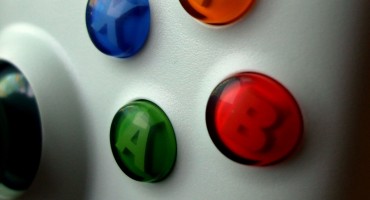
The Parallel Dimorphism Issue
Parallel Dimorphism is a phrase I use to refer to the occurrence of identical sexual dimorphism traits (observable differences between genders) between humans and other races in games.

Parallel Dimorphism is a phrase I use to refer to the occurrence of identical sexual dimorphism traits (observable differences between genders) between humans and other races in games.

I really wanted to like this. However, after tossing a few bucks at the game it just turned to say “I could use a few more dollars.”

While the idea of punishing a player for losing by forcing them to watch an ad is funny, unique, and interesting, in practice it falls a bit flat.

I’ve personally seen one contributor to Forbes explain why he decided to buy Nintendo’s latest console, while another had an article up at the exact same time deriding Nintendo.
I’ve decided to throw my voice into the mix, and explain why I’m proud to own a Wii U and why I think you would be too.

In our last column, we got all the way up to Pong, and its creation. Let’s be blunt, here: The simple fact that Pong was created is not enough.

In which a manifesto of sorts is offered; consider it a “behavior wish list” for the new year.

We wrap up 2013 with our Best Games of the Year! Listen to the three stooges argue about how some games were left off of the list and how some were higher than expected. We don’t come to blows … but almost.

I’m going to be up-front here: I have a crush on this game. I liked the original Guild Wars, but this game? I like-like it. I like-like the heck out of it. From the character design to the mechanics, it all just seems to fit together so perfectly.

How did we get from the bored man working with radar scopes, all the way to the consoles and PC Games of the modern age? Let’s take a long step back and consider The History of the World.

Somewhere between Tim Burton and Don Hertzfeld with an offbeat sense of humour to match, Gomo is sure to leave you with a smile on your face while you play.